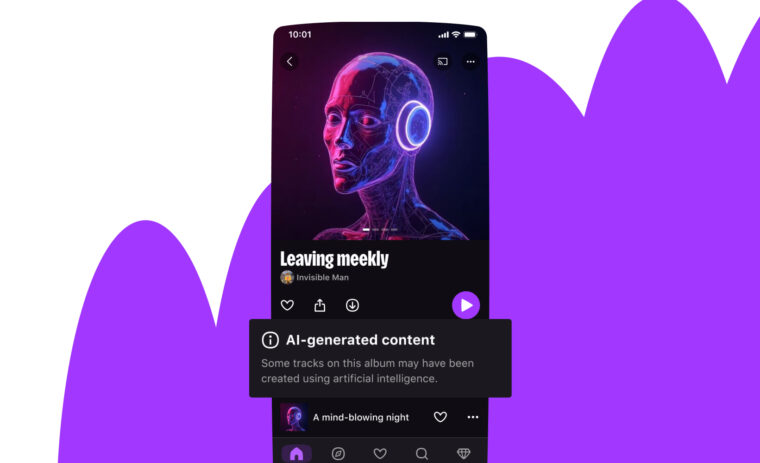It’s Fashion week in Paris again. There’s a perception that fashion comes from the creative minds of the happy few at the top of the fashion food chain and eventually trickles down to the masses. Even Hollywood likes to make us believe that fashion starts at the top and works its way down.
Remember this?
https://www.youtube.com/watch?v=p5WWy_0VLS4
But then there is music to remind us that actually, fashion often trickles upwards. Artists and musicians alike are often broke when they start out their career. How do you create stage presence without breaking the bank? How do you stand out from the crowd as an artist without a penny in your pocket? The answer is imagination. Fashion comes from the streets, from the people who make riches out of rags and who aren’t scared to express their own individuality. Here are some of the biggest artists who began their career penniless but in style, started fashion trends and changed the fashion world forever.
KURT COBAIN
Iconic album ‘Nevermind’ has just celebrated its 25th anniversary. Nirvana changed the lives of teens no longer able to connect with the punk movement and continues to embody the 90s like no other album ever will. Style icon Kurt Cobain was one of those artists that never set out to start a trend, yet he changed fashion for an entire generation of broke-ass kids. Cobain invented the modern grunge style and allowed men renewed license to play with fashion. Cobain’s feminist approach led him to wear skirts, women’s sunglasses, Daniel Johnston t-shirts, and basically not give a gender-based shit. No-one rocked the granddad cardigan with effortless cool like Cobain. Today, his style still inspires designers like Hedi Slimane and Marc Jacobs.
MADONNA
Madonna’s musical and cultural impact on the world is so great that today she is considered by many as the greatest woman in music and one of the 20th century’s biggest style icons. Her style has evolved radically throughout the years. Although Madonna is often accused of cultural appropriation and shunned for following trends in an attempt to keep up with the youth driven industry, her early 80s look remains unsurpassable.
Her trademark religious necklaces, controversial conical bras (designed by Jean Paul Gauthier), lace gloves and oversized bows motivated every perm clad teen to mimic her look and gave a boost to artists following in her footsteps.
SEX PISTOLS
Sex Pistols joined the punk scene in 1976. They’re considered the first punk band to have caught the attention of the fashion industry and be incorporated into mainstream culture, which is ironic as Sex Pistols were part of the no-logo, anti-consumerist movement. Their manager, Malcolm Mclaren, asked then-wife and designer, Vivienne Westwood to design their uniforms, composed of safety pins, leather and t-shirts sporting political slogans. This new, controversial DIY-inspired fashion statement propelled the band to the forefront, where being poor became chic and a middle finger to society. Punk rebellion became a fashion statement in itself. Today the punk style has become a backbone in fashion culture, with brands like Comme des Garçons, Alexander McQueen and Givenchy reinterpreting the punk style year after year.
DAVID BOWIE
David Bowie has been an unrivalled touchstone for designers since the early 70s. He brought platform shoes, dresses for men, fiery red mullets and other extravagant looks that had designers begging him to create his stage costumes. Bowie was no stranger to the underground LGBT scene of the day and drew inspiration from cabaret drag queens to create his very own magical persona, Ziggy. Bowie was also greatly inspired by Japanese Kabuki theatre. In fact, it was Japanese designer Kansai Yamamoto who designed most of his legendary stage outfits. Looking back, in an era where homosexuality had only just been decriminalized in England and remained taboo, it’s amusing to see how Bowie’s androgynous style was imitated and mimicked by a mostly-heterosexual male audience. In concert queues, girls and boys alike displayed badly chopped hair and blue eyeshadow. Bowie was the ultimate fashion pioneer.
DEBORAH HARRY
Debbie Harry, aka Blondie, slapped everyone in the face with peroxided hair, side boob, double denim and a dirty disco look. Considered the darling of the New York Punk Scene, Blondie’s dishevelled bob and sultry look brought most guys (and girls) to their knees. If you couldn’t have her then you wanted to hang with her.
RUN DMC
‘My Adidas’ is the song that launched hip-hop sneaker culture and captured the essence of 80s New York. Renowned for their Adidas tracksuits, superstars and black fedoras, the Run DMC trio gained even more attention than Notorious BIG, mainly due to their close knit relationship with brands. Run DMC wanted to honor the black community from Queens. Their sleek streetwear represented black urban youth all over America, giving them a voice in fashion that had been silenced by years of segregation. The rappers’ choice of attire also told the world that the African-American community had style, charisma and artistic value. Finally, Run Dmc solidified and revolutionized the relationship between performer and consumer. Their ode to ‘Adidas’ helped create a new form of revenue for performers and brands alike.
GWEN STEFANI
Think tank tops, bindis, hair buns, skater punk, Kawaï and Harajuku girls. Yes, Gwen Stefani was ‘internet hot’ before internet and emojis were even around. She even launched her own clothing line. The grunge-punk hybrid caused 90s teens to flock to Claire’s Accessories to buy hair mascara and designers to bring checkered pants back to the catwalk. Sea Punk and other digital fashion movements wouldn’t exist without Stefani.





